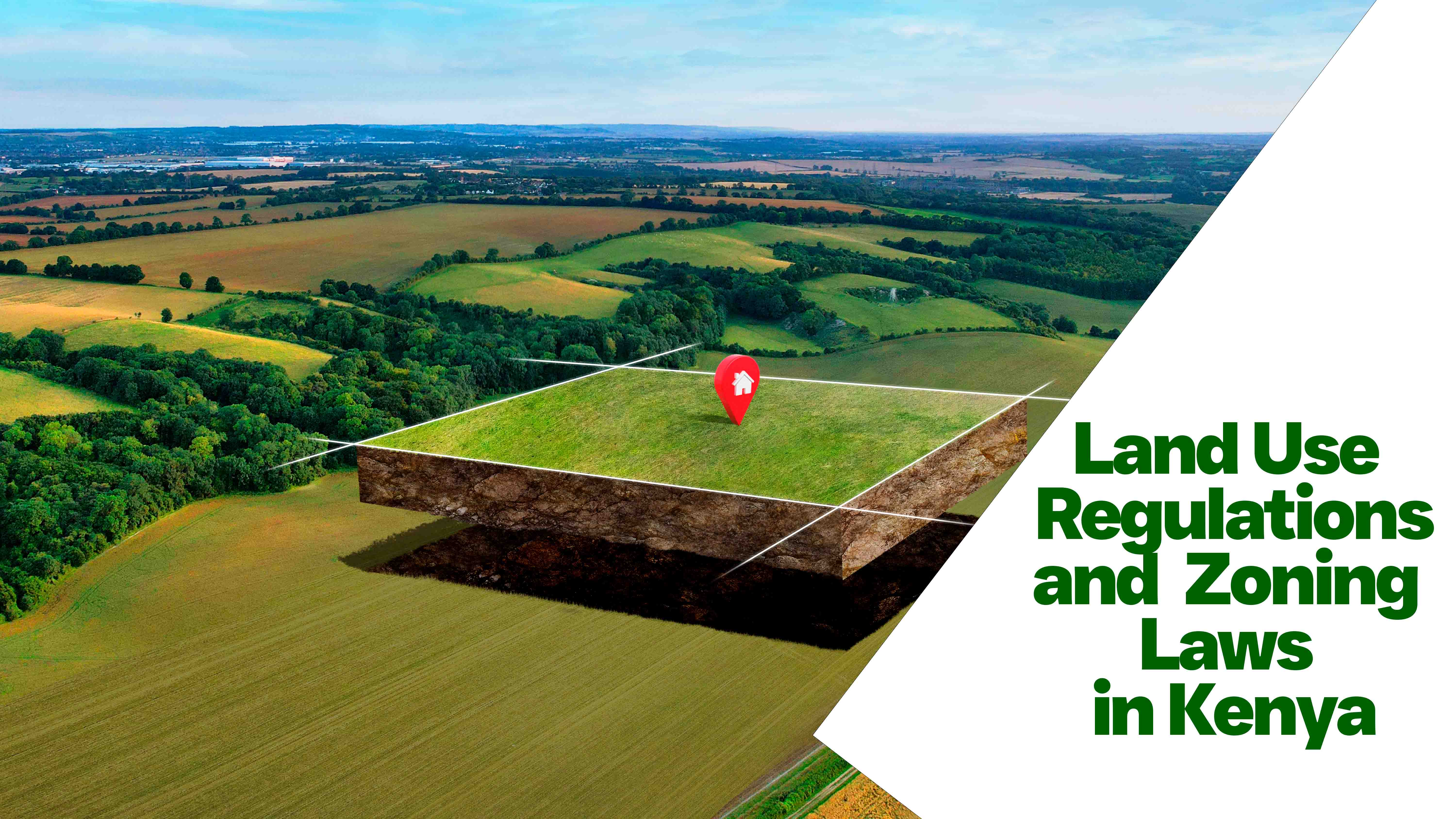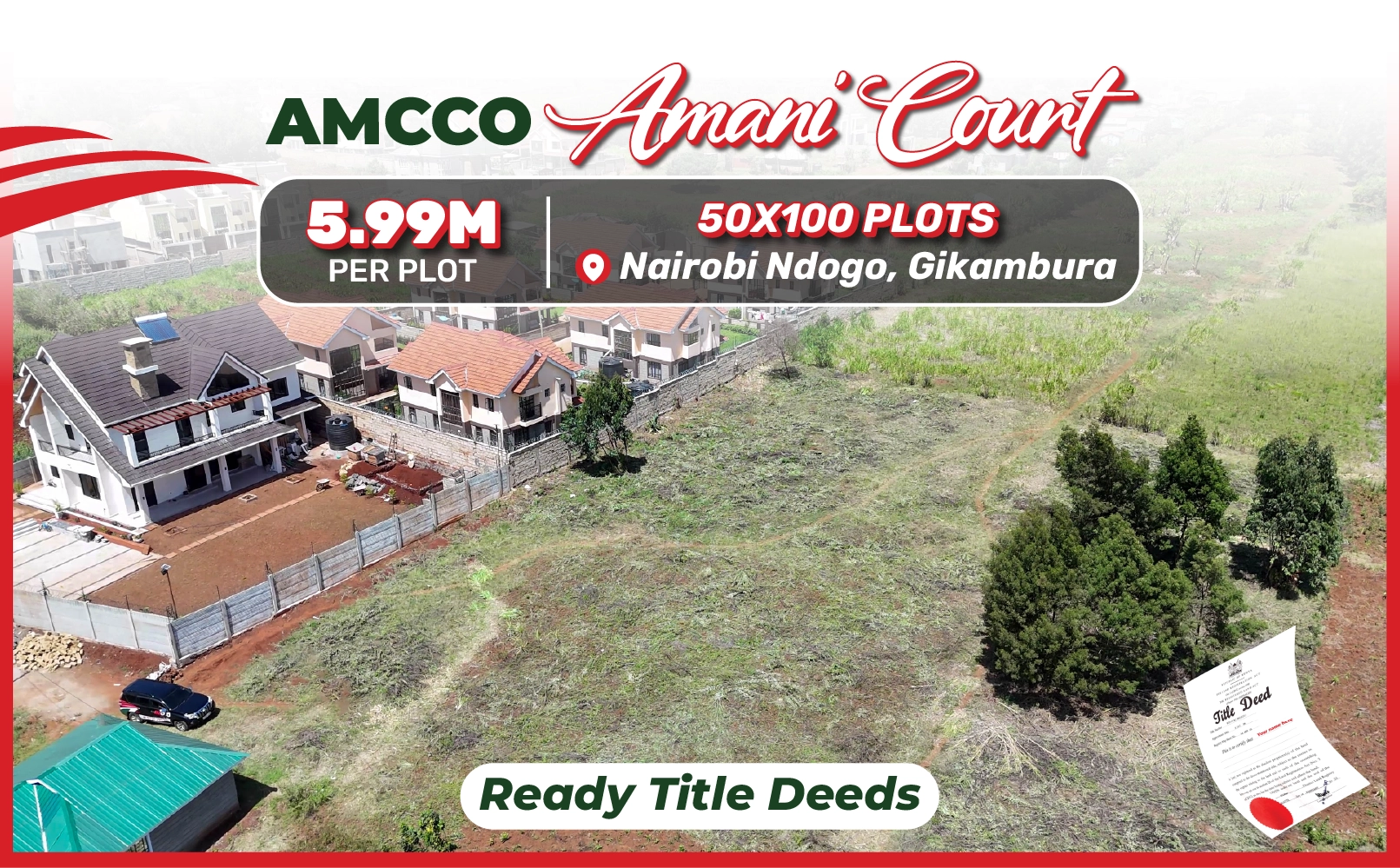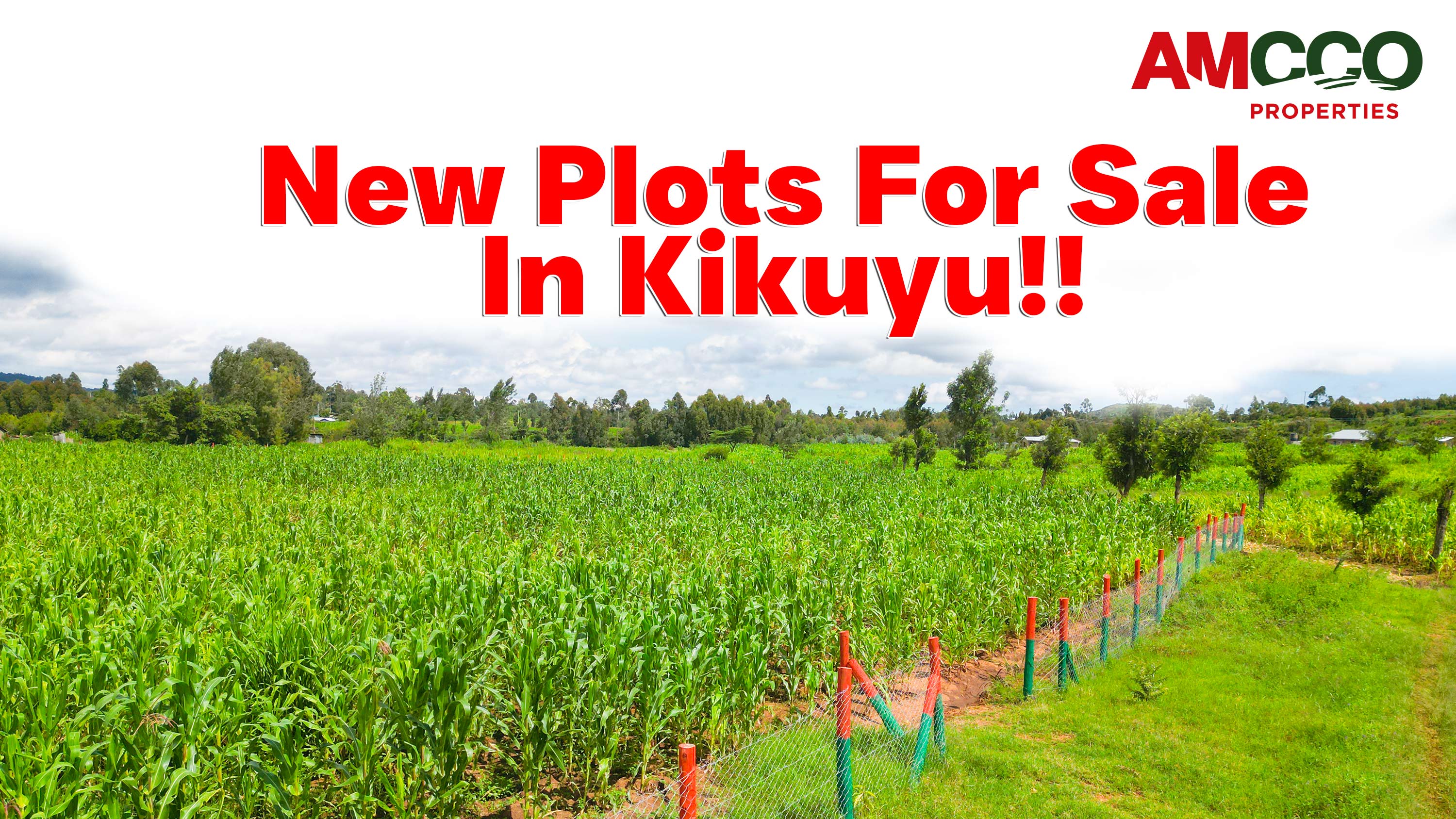Land Use Regulations and Zoning Laws in Kenya
Kenya's land regulations and zoning laws are enshrined in the constitution and other enabling statutes, which guide how land should be used in an orderly and legal way.
These laws and regulations help prevent conflicts and solve disputes that may arise in the process of using the land.
Before buying land, it is important to familiarise yourself with the various regulations and laws that govern the acquisition and use of that particular land. This is critical because not every parcel of land is available for sale.
AMCCO Properties Limited has a team of experienced lawyers and other experts who guide clients through these complex legal processes to ensure compliance with every regulation for smooth transactions, leaving no legal or technical loopholes.
1. Classification of land in Kenya
The Constitution of Kenya (2010) provides a framework for land management and classification.
It categorises land into three types: public, community, and private land.
Public land: Article 62 of the constitution defines public land as:
(a) land which at the effective date was unalienated government land as defined by an Act of Parliament in force at the effective date;
(b) land lawfully held, used or occupied by any State organ, except any such land that is occupied by the State organ as lessee under a private lease;
(c) land transferred to the State by way of sale, reversion or surrender;
(d) land in respect of which no individual or community ownership can be established by any legal process;
(e) land in respect of which no heir can be identified by any legal process;
(f) all minerals and mineral oils as defined by law; all roads and thoroughfares; all rivers, lakes and other water bodies as defined by an Act of Parliament; the territorial sea, the exclusive economic zone and the sea bed
Public land cannot be bought or sold to an individual. It is fully owned by the public and administered by the government. However, there is a lease option where one is allocated a parcel of land for a certain period of time with the option to renew it.
Any structure built on public land illegally is demolished.
This is why it's important to know the category of land you're interested in before making a payment.
Community land is owned communally by a group of people who share a common ancestral origin. Traditionally, this land was not supposed to be sold but rather transferred from one member of the community to another, e.g., a father to a son. However, with the advent of new laws and regulations, provisions have been adopted to enable the transfer of ownership of community land.
For instance, Section 8 of the Community Land Act states that a county government shall not sell, dispose of, transfer, convert for private purposes, or dispose of any unregistered community land that it is holding in trust on behalf of communities for which it is held.
Section 21 (1) of the same Act states that community land may be converted to public land by (a) compulsory acquisition, (b) transfer, or (c) surrender.
Section 21(2) stipulates that a registered community land may, subject to the approval of the registered community, be converted to private land through (a) transfer or (b) allocation by the registered community, subject to ratification of the county assembly.
Private land is owned by an individual, a group of individuals or private corporate persons. This can be sold or bought at will.
Riparian land: Kenyan laws (Environmental Management and Coordination Act 2015) define riparian land as being a minimum of 6 metres and up to a maximum of 30 metres on either side of a river bank from the highest watermark. It is also entrenched in the constitution.
2. Relevant Acts of Parliament guiding land use in Kenya
National Land Commission Act (2012)
This Act establishes the National Land Commission (NLC), which oversees land management and advises on land policy. The NLC is responsible for reviewing past land injustices and making recommendations for restitution.
Land Act (2012)
This Act provides guidelines on how land should be administered and managed.
For instance, it provides for land registration, leasehold tenure, and land use planning regulation.
Land Registration Act (2012)
This Act outlines the processes for land registration, ensuring secure land tenure and accurate record-keeping. For instance, It mandates that all land transactions, including transfers and leases, be registered to be legally recognised.
Urban Areas and Cities Act (2011)
This Act provides for the management and governance of urban areas and cities in Kenya, including zoning regulations.
It stipulates that urban areas must have a physical development plan guiding land use, infrastructure development, and zoning.
Physical and Land Use Planning Act (2019)
This Act provides a framework for planning and regulating land use and development. For instance, It requires county governments to prepare physical and land use plans for urban and rural areas, which include zoning regulations for residential, commercial, industrial, and agricultural land.
Environmental Management and Coordination Act (EMCA) (1999)
This Act establishes the legal and institutional framework for environmental management in Kenya, affecting land use and zoning.
For instance, certain types of development projects require environmental impact assessments (EIAs) to ensure compliance with environmental standards.
3. Zoning regulations in Kenya
County Government Regulations:
County governments have the authority to create bylaws and regulations tailored to their specific needs, including zoning laws.
Example: Nairobi City County has specific zoning regulations that categorise areas into residential, commercial, industrial, and mixed-use zones.
Land zoning categories in Kenya
Residential Zoning: Sets apart areas designated for housing, with regulations on the types of residential buildings allowed (e.g., single-family homes, apartments).
Commercial Zoning: Refers to areas designated for business activities such as shops, offices, and restaurants. For example, Nairobi's Central Business District (CBD) is zoned for commercial activities.
Industrial Zoning: Refers to areas set aside for manufacturing and industrial activities, often located away from residential zones to minimise conflicts. An example is the Athi River industrial zone.
Agricultural Zoning: Land designated for farming activities. This zoning ensures the protection of agricultural land from being converted to other uses. An example is the expansive agricultural zones in Rift Valley.
These regulations and laws ensure the orderly development of land, balancing the needs of development with environmental conservation and social equity.
These are some of the key land use regulations and zoning laws that every person interested in buying land must familiarise themselves with before investing in the property.
AMCCO Properties Limited has a team of experts who guide clients through these processes. If interested in becoming part of the company’s growing community of happy clients, don’t hesitate to contact the head office via 0701 293 199
You can also take advantage of the company’s newly launched VR services and enjoy the breathtaking view of all the properties on sale from the comfort of your couch. All you need is to follow this link https://virtual.amccopropertiesltd.co.ke/





